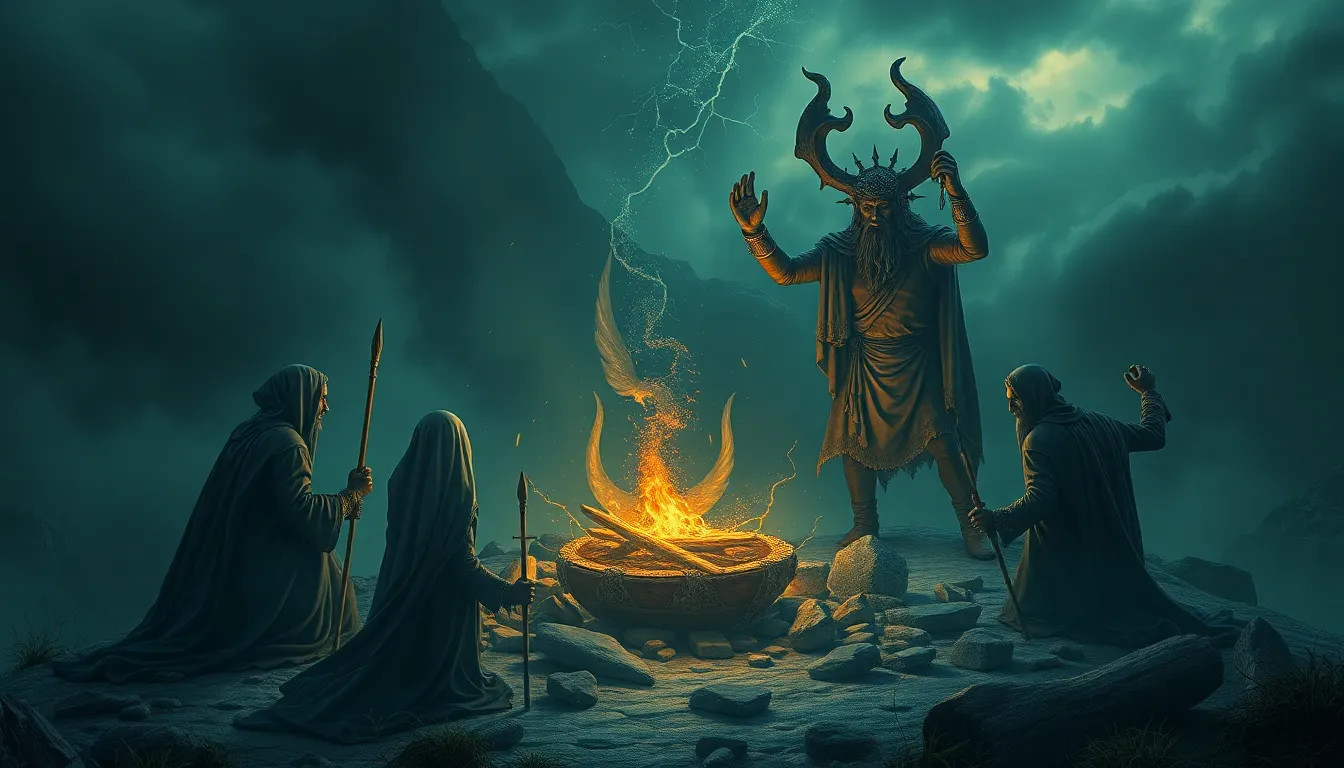The Most Influential Myths of Ancient Deities and Their Teachings
1. Introduction to Ancient Deities and Their Myths
Ancient deities are the gods and goddesses worshipped by civilizations throughout history, often embodying natural forces, moral values, and cultural ideals. These figures are central to the myths that explain the world around us, providing insight into the values and beliefs of the societies that revered them.
Myths serve as a window into the past, illustrating how people understood their existence, their environment, and their place in the universe. This article will explore some of the most influential myths surrounding ancient deities, examining the teachings embedded within these stories and their lasting impact on culture and philosophy.
2. The Pantheon of Ancient Deities: A Global Overview
Throughout history, various civilizations have created rich pantheons of deities. Here is a brief overview of some of the most prominent:
- Greek Pantheon: Featuring gods like Zeus, Hera, and Athena, their myths explore themes of power, love, and heroism.
- Roman Pantheon: Adopting and adapting Greek deities, they emphasized law, order, and military prowess.
- Egyptian Pantheon: Gods such as Osiris and Isis embody the cycle of life and death, focusing on the afterlife.
- Norse Pantheon: Characters like Odin and Thor illustrate bravery and the struggle against chaos.
- Hindu Pantheon: Figures like Vishnu and Kali convey the complexities of creation and destruction.
Despite their differences, these pantheons share common themes, such as the interplay between chaos and order, the importance of morality, and the quest for knowledge, reflecting the societies that worshipped them. Mythology played a crucial role in these cultures, encapsulating their beliefs, fears, and aspirations.
3. Prometheus: The Titan of Fire and the Value of Knowledge
In Greek mythology, Prometheus is known as the Titan who defied the gods by stealing fire and giving it to humanity. This act of rebellion signifies the importance of knowledge, innovation, and the human spirit.
The Promethean myth encapsulates several key themes:
- Knowledge: Prometheus symbolizes the quest for knowledge and the enlightenment it brings.
- Rebellion: His defiance against Zeus illustrates the struggle against tyranny.
- Sacrifice: Prometheus suffers for his gift to humanity, highlighting the theme of sacrifice for the greater good.
The impact of Prometheus on Western thought is profound, influencing philosophers like Nietzsche and Sartre, who viewed him as a symbol of human agency and the fight against oppression.
4. Osiris: The God of the Afterlife and the Cycle of Life
Osiris, a central figure in Ancient Egyptian mythology, represents the afterlife and resurrection. His story revolves around his murder by his brother Set and subsequent resurrection through the love of his wife, Isis.
Key teachings from the myth of Osiris include:
- Mortality: Osiris embodies the inevitable cycle of life and death.
- Resurrection: His revival teaches that death is not the end but a transition to another existence.
- The Afterlife: Osiris’ role as the judge of the dead underscores the importance of moral conduct in life.
The influence of Osiris extends beyond Egypt, inspiring concepts of resurrection and the afterlife in various religious beliefs, including Christianity.
5. Thor: The Norse God of Thunder and the Concept of Honor
Thor, the hammer-wielding god in Norse mythology, is celebrated for his strength and bravery. His stories often revolve around his battles against giants and his protection of humanity.
Thor’s character exemplifies several core values:
- Bravery: His fearless nature in battle encourages courage in the face of adversity.
- Loyalty: Thor’s unwavering loyalty to his friends and family highlights the importance of communal bonds.
- Protection: As a protector of mankind, he symbolizes the need to safeguard one’s community.
In modern culture, Thor’s teachings resonate through literature, films, and comic books, reinforcing the values of bravery and honor.
6. Kali: The Hindu Goddess of Destruction and Transformation
Kali, a complex figure in Hindu mythology, embodies both destruction and protection. Her fierce persona represents the transformative power of change and the cycle of creation and destruction.
Kali’s myths teach important lessons:
- Transformation: Destruction is necessary for renewal and growth.
- The Cycle of Creation: She illustrates the interconnectedness of life, death, and rebirth.
- Feminine Power: Kali’s fierce nature has inspired feminist interpretations, symbolizing empowerment and strength.
Kali’s influence continues to inspire spiritual movements and discussions about the role of women in mythology and society.
7. Athena: The Goddess of Wisdom and Strategic Warfare
Athena, one of the most revered deities in Greek mythology, is associated with wisdom, warfare, and strategy. She emerged fully grown from the head of Zeus, signifying intelligence and strategic prowess.
Her teachings encompass:
- Wisdom: Athena encourages the pursuit of knowledge and education as essential virtues.
- Strategy: Her approach to warfare emphasizes the importance of strategy over brute strength.
- Empowerment: As a female deity in a patriarchal society, she represents female empowerment and leadership.
Athena’s legacy remains significant in contemporary discussions about women’s roles in leadership and education.
8. Quetzalcoatl: The Feathered Serpent and the Balance of Nature
Quetzalcoatl, a prominent deity in Mesoamerican cultures, is often depicted as a feathered serpent. He is associated with creation, the wind, and the balance of nature.
The teachings of Quetzalcoatl revolve around:
- Creation: He is credited with the creation of humanity and the world.
- Balance: Quetzalcoatl emphasizes the importance of maintaining harmony with nature.
- Respect for Nature: His teachings encourage respect and reverence for the environment.
Quetzalcoatl’s influence is evident in modern environmental movements that advocate for sustainable living and respect for natural resources.



